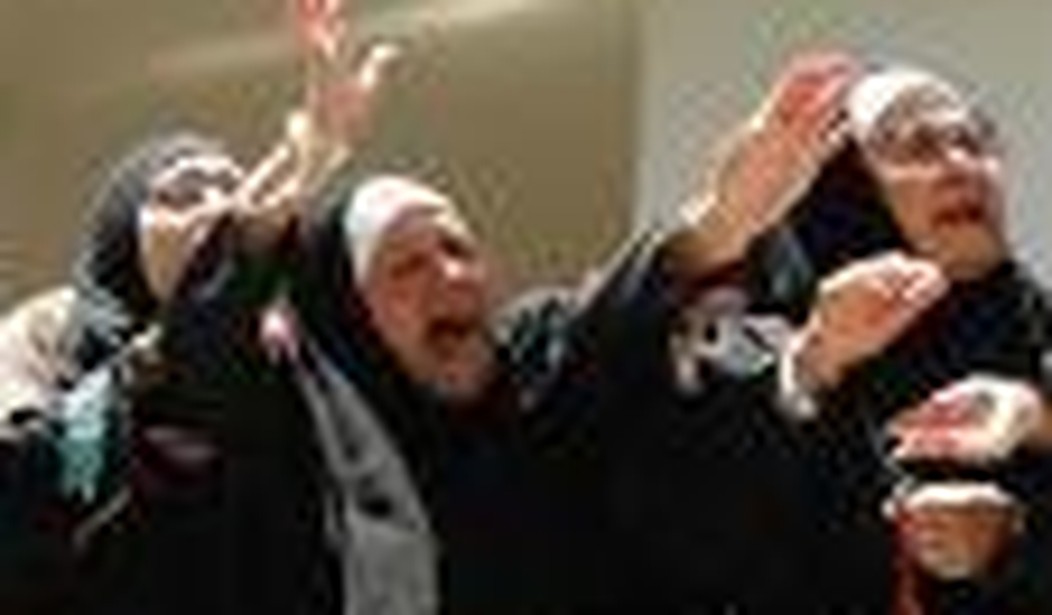After five days of chaos, Lebanese are asking, “What happens next?”
The pro-government March 14 Coalition refused to fight Hezbollah and its militant cronies in Beirut.
The coalition, named after the anti-Syrian/ anti-Hezbollah demonstrations in Beirut on 14 March 2005
that overthrew the Syrian stranglehold on Lebanon, hoped to prove that the opposition parties are mere brigands who use violence to subvert democracy.
The government’s strategy worked. Hezbollah, the Shia Amal Movement, and the anti-Semitic fascist Syrian Social National Party fired rocket-propelled grenades, tripod mounted machine guns, and small arms, and blocked off streets in Beirut, intimidating residents and imprisoning them. Much of the Lebanese population, and particularly
the residents of Beirut, were appalled by the opposition’s coup.
Many, such as myself, headed for safer ground. I wrote my previous dispatch crouched in a tub, avoiding sniper fire. I’m writing this piece from the Christian suburbs north of Beirut. The violence in West Beirut generally ended on Friday night, but brigands roamed the street. Saturday morning, residents left got to leave their houses for the first time in days to buy supplies. However, by afternoon the situation once again became tense and masked gunmen returned to the streets. Two friends called me, and we jumped in a taxi to go across the city. We passed gunmen on our ways and drove down many one way streets to weave our way through roadblocks and destruction.The government did not fight back because: 1) it does not believe that civil war will solve Lebanon’s problems in the long-term, and 2) They cannot win a fight in Beirut against Hezbollah, the only civil war era militia allowed to keep its weapons during the Syrian occupation of Lebanon. It continues to receive over $1 billion a year from Iran.
The parties in the 14 March Coalition would have trouble competing with the elite paramilitary forces of the oil-financed Iranian government who honed their skills against the Israeli Defense Forces, one of the most skilled armies in the world.
Hezbollah realized it failed to mount the coup it intended. They could not claim victory over rival political parties and the citizens who provided those parties with a parliamentary majority if those parties did not fight. The only thing Hezbollah proved was that they are willing to undermine the symbols of stability in the nation – the Lebanese presidency, Army and security forces – and that they are willing to use their weapons against other Lebanese, something Hezbollah denied they would do for 20 years.
In order to provoke the response they thought they would get in Beirut, Hezbollah attacked the mountainous Druze strongholds in Aley and Choueifat. The Druze community chose to fight and protect their areas. Druze leader Walid Jumblatt ordered his men not to fight, but the Druze on the frontline refused to back down until after 6pm on
Sunday. The Druze killed and captured many Hezbollah fighters, and advanced down the mountain towards Hezbollah’s stronghold in the southern suburbs of Beirut.
The fight did not continue because Walid Jumblatt and March 14 leaders believe Lebanon is not prepared for a full-scale civil war. A war would provide the Syrian government with ample reason to re-invade. Most of the present leaders of Lebanon fought in the Lebanese civil war, thus they know the consequences of their actions. They know that the support other countries are willing to provide does not compare to the amount the Syrians are willing to expend to control Lebanon. They know that Hezbollah’s arch-enemy Israel is fully willing to cooperate with the Syrian regime, which has experience manipulating Israel’s constantly changing democratic leadership. Israel and Syria, despite
occupying geographically contiguous areas during the Lebanese civil war, never fought. The Syrian/Israeli border is one of the most peaceful in the Middle East.
The March 14 Coalition used democratic means to go on the offensive against Hezbollah. They provoked Hezbollah into this confrontation which manifested Hezbollah’s true intentions and put Hezbollah into an
extremely awkward position.
What comes next is unknown.
Will Hezbollah strategize with the Syrians and Iranians? Definitely.
Will the Arab League, Saudi Arabia, and Egypt finally do something to further isolate regimes that provoke chaos in the region? Probably not. A lot of words will be spoken, but the few actions that follow
will not do enough.
Will the democratic world decide that it is time to enforce United Nations resolutions and take decisive action in accordance with their high-minded, well articulated philosophies? Definitely not. The West will provide band-aids of support where invasive surgery is necessary.
What will the government and March 14 Coalition do? They will negotiate with Hezbollah, concede some ground, and continue to strengthen the institutions of the Lebanese state. The United States, French, and others are training the Lebanese Army and Internal Security Forces how to properly do their jobs after 30 years of intentional Syrian neglect.
The March 14 Coalition is in an awkward position. The parties that make up the parliamentary majority that controls the government cannot undermine government institutions to fight a war against Hezbollah. If they want to maintain legitimacy, they cannot allow sectarian militias to send the country back into chaos and prevent sectarian
reconciliation from ever occurring. They must find a solution that meets the demands of all Lebanese, and that is reasonable given the amount of Syrian/Iranian interference and Arab/Western reticence.
Of course, there might not be a democratic, peaceful solution. A few days of calm are needed to assess what just happened. What comes next is not known, but civil war is definitely an option.
Charles Chuman is a media and political analyst currently in Beirut.









Join the conversation as a VIP Member